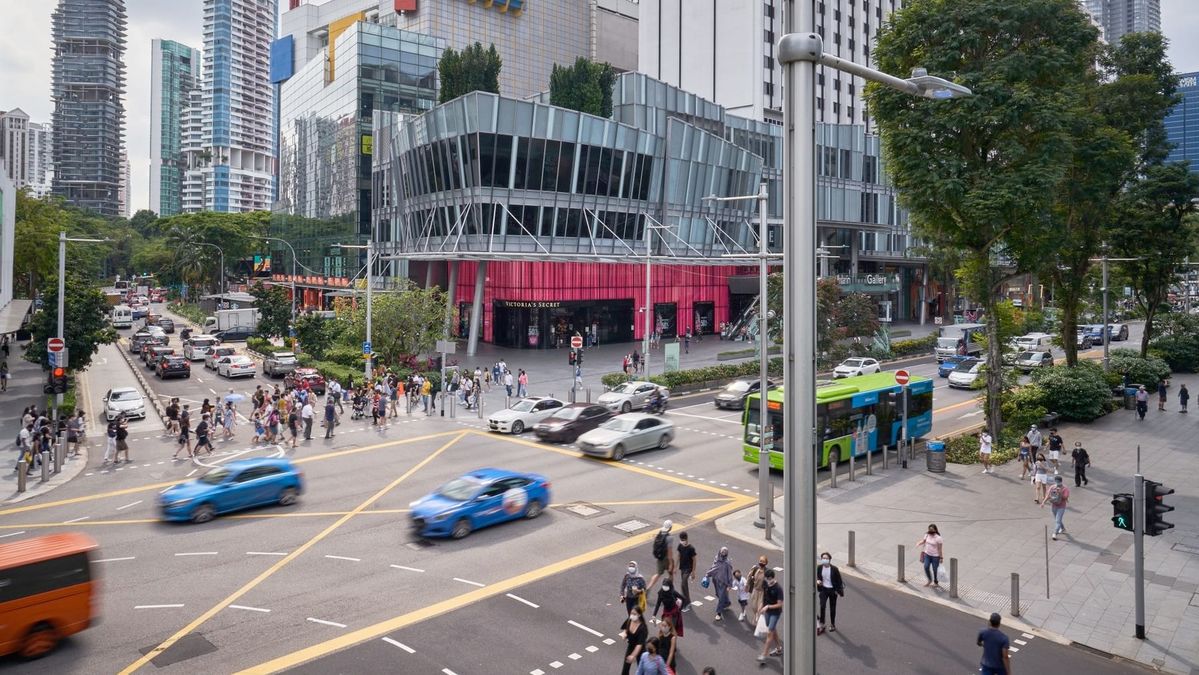The Singapore-Hong Kong travel bubble looks about to burst (again)
A snap one-month lockdown is seen as Singapore's last hope for keeping the HK travel bubble alive.

Singapore is returning to lockdown conditions it last imposed a year ago, banning dining-in and limiting gatherings to two people, as a rising number of untraceable infections pressures one of the world’s COVID-containment stories.
The resurgence puts in doubt a long-planned and highly-anticipated air travel bubble with Hong Kong, set to start May 26 but now unlikely to go ahead on schedule.
Officials in both cities have signaled that the highly anticipated bubble, first scheduled to start last November, will be delayed again in light of the outbreak in Singapore.
Transport minister Ong Ye Kung said at a Friday briefing that it’s very likely that Singapore “may not meet the criteria” for the arrangements to go through; the government will make an announcement early next week on the bubble’s fate after reviewing local cases.
According to the terms of the agreement, the travel bubble will be closed for two weeks if the seven-day moving average of the daily number of unlinked local cases is more than five in either city. It’s currently just above 2 in Singapore and near zero in Hong Kong.
There’s a “high chance” the air travel bubble may not go ahead as scheduled, Hong Kong Secretary for Commerce and Economic Development Edward Yau said Friday, citing Singapore authorities. Yau said he will speak to Singapore’s new transport minister S. Iswaran early next week.
Singapore was also scheduled to host the Shangri-La Dialogue early next month and the Davos-based World Economic Forum in August.
A sharp and sudden spike
“A pattern of local unlinked community cases has emerged and is persisting,” the health ministry said in a statement on Friday. “We need to act decisively to contain these risks as any one leak could result in an uncontrolled resurgence of cases.”
The number of new cases in the community has increased to 71 in the past week from 48 in the week before, while the number of unlinked infections – the most concerning to officials as they signal undetected spread in the community – has risen to 15 in the past week from seven in the week before.
While the numbers are far smaller than ongoing outbreaks in countries such as the US that are charging ahead with opening up, the flareup is a major setback by Singapore standards, as the city-state is, like Australia, one of handful of “Covid havens” that had previously nearly eliminated the pathogen domestically.
For four weeks from May 16 to June 13, gathering sizes as well as household visitors will be cut to a maximum of two people from five people now, working from home will be the default and food places can only do takeaways and deliveries.
Given the new ban on dining-in, the Singapore government will increase job support subsidies for food and beverage firms as well as waive rental for one month for hawker stall and coffee shop tenants.
It is also stepping up virus testing from May 15, and will start using rapid test kits for people with symptoms at health centres.
Changi Airport is now the single biggest cluster of COVID cases, with 46 linked to the aerodrome, raising fears that travellers have spread the pathogen to airport staff despite strict post-arrival quarantine regulations.
The government closed the airport terminals and connecting Jewel shopping mall to the public for two weeks from May 13, though it remains open for air travel. It has also been testing workers in the facilities.
This article is published under license from Bloomberg Media: the original article can be viewed here